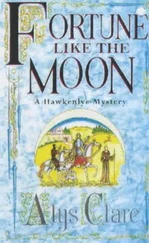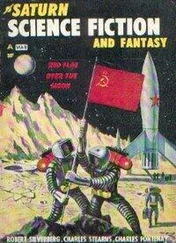Clare Vanderpool - Moon Over Manifest
Здесь есть возможность читать онлайн «Clare Vanderpool - Moon Over Manifest» весь текст электронной книги совершенно бесплатно (целиком полную версию без сокращений). В некоторых случаях можно слушать аудио, скачать через торрент в формате fb2 и присутствует краткое содержание. Год выпуска: 2010, ISBN: 2010, Издательство: Random House Children's Books, Жанр: Старинная литература, на английском языке. Описание произведения, (предисловие) а так же отзывы посетителей доступны на портале библиотеки ЛибКат.
- Название:Moon Over Manifest
- Автор:
- Издательство:Random House Children's Books
- Жанр:
- Год:2010
- ISBN:978-0-375-89616-3
- Рейтинг книги:4 / 5. Голосов: 1
-
Избранное:Добавить в избранное
- Отзывы:
-
Ваша оценка:
- 80
- 1
- 2
- 3
- 4
- 5
Moon Over Manifest: краткое содержание, описание и аннотация
Предлагаем к чтению аннотацию, описание, краткое содержание или предисловие (зависит от того, что написал сам автор книги «Moon Over Manifest»). Если вы не нашли необходимую информацию о книге — напишите в комментариях, мы постараемся отыскать её.
Moon Over Manifest — читать онлайн бесплатно полную книгу (весь текст) целиком
Ниже представлен текст книги, разбитый по страницам. Система сохранения места последней прочитанной страницы, позволяет с удобством читать онлайн бесплатно книгу «Moon Over Manifest», без необходимости каждый раз заново искать на чём Вы остановились. Поставьте закладку, и сможете в любой момент перейти на страницу, на которой закончили чтение.
Интервал:
Закладка:
This cannot be. To have come all this way … It is just a cold in her eye. Nothing serious.
But her words are not understood. And her son, she cannot take him back on the boat. He is allowed to stay, so he does not get a return ticket, and she does not have enough money to buy one. Gizi says, I will keep him with me. I have a place to stay in New York. I will give you the address. When your eye is better, you will come back.
The young woman hugs her son, kisses him again and again, and, through her tears, says to be a good boy and she will come back. But how will you find me? he asks. She takes a locket from her neck. Inside is a compass. See? she says to him. This needle always points north. But in here, she says, pointing to her heart, I have a compass that always points to you. No matter where you are, I will find you.
She puts the locket around his neck and Gizi holds his hand while they wave goodbye.
The woman takes the long trip back to Europe. Her eye gets better and she works very hard to make enough money to take the boat ride again. This time she is allowed into America and goes to the place where Gizi is a seamstress for a rich family. But the maid who answers the door shakes her head. Gizi got very sick. She was in a hospital for three weeks and died.
But little Benedek. The boy who was with her? The maid shrugs. She doesn’t know where they took him.
For a whole year, the young woman walks the streets of New York. She knocks on doors of churches, orphanages, hospitals. No one can help her. No one has seen her son. Until, one day, she knocks on the door of the Orphanage of the Good Shepherd. Yes, they had a boy there. His name was Benedek. But he was put on an orphan train and sent west.
For many more months the woman’s search continues. As she goes farther west into America, she draws attention. People frown at her thick accent. They raise their eyebrows at her dark skin. She tells them she is from a family of diviners, a people who read the signs of land and water. But they do not understand. She is shunned and called a Gypsy and a fortune-teller. She asks about a boy and they hold their children behind them. Then she finds a little town in southeast Kansas called Manifest. And she finds her son.
But now little Benedek is seven years old. He has been adopted by Hadley Gillen, who owns a hardware store. The man loves the boy and the boy is happy. The child speaks their language as if he does not remember the one he heard as a baby.
If she reveals herself as his mother, she will bring shame on him. They will shun him the way she has been shunned. So what does she do? She does what a diviner does. She watches. She waits. She loves.
As people come to her for their palms to be read or their fortunes told, she puts on a show. She dresses the part. But what she gives them instead is the truth she observes and knows about them. To the young wife who comes in her grief over not being able to have a child, Miss Sadie gives herbs to calm her fears and open her womb. When the aging grandmother who grows forgetful and fears she is losing her mind comes to her, Miss Sadie, the diviner, comforts her. She pats her hand and tells her that the things she does remember, things from long ago, are as real as what happened yesterday.
But mostly, she watches, she waits, she loves.
Only one woman in the town takes note. Sees her pain. Recognizes the look of a mother watching her son, even from a distance. The nun who is also a midwife. She promises to keep the woman’s secret. But she provides her with grade cards, childhood drawings, school papers. She does her best to do what a midwife does. She helps the woman realize, in some small way, her motherhood. She helps the mother keep the promise she made in the peekaboo song she once sang to her son. Where is little boy hiding? Where did little boy go? Mama is always watching you. Where you are, Mama will always know.
But the woman, the mother, she watches, she waits, she loves. And she bears the weight of that love. She bears the loss of her son to war. She bears the story of Manifest. When everyone else is crushed by it, by the loss, the pain. When no one else can bear to remember. She is the keeper of the story. Until someone who needs to hear it comes along. When it will be time to make it known. To manifest. That’s what a diviner does.
Beginnings, Middles, and Ends
AUGUST 30, 1936
Over the following days, Lettie, Ruthanne, and I took long walks. They listened as I told them the whole story. About Jinx and Ned, and Miss Sadie, and Gideon. And me.
We talked about other things too. About how the town seemed to have come back to life. All the Remember When stories in the paper had folks talking about the way Manifest used to be. And all the fine memories they had. And how people used to take care of each other. There were tears too, but they seemed to be healing tears.
We talked about how Ivan DeVore, the postmaster, had finally worked up the nerve to ask Velma T. to the upcoming Second Annual Homecoming Celebration, being held eighteen years after the first one. She said she knew he’d been sending her those anonymous notes all those years, but it wasn’t a woman’s place to do the asking.
And the women were piecing together another quilt, only this time, instead of a victory quilt, it was a friendship quilt, and they asked Miss Sadie to make the center square. After all, it wasn’t her fault that a young boy’s first and only welding job had been to make her a gate with her family name, Redizon, at the top. Those letters that when poorly welded and a little warped, looked more like Perdition.
Mrs. Dawkins at the drugstore gave Lettie, Ruthanne, and me a dollar apiece for our idea of offering free ice-cold water to folks traveling by on the highway. Once we put up the sign that read COME TO MANIFEST FOR FREE ICE-COLD WATER—IT WON’T CURE YOUR ILLS, BUT IT WILL QUENCH YOUR THIRST, the cars started rolling in. Most folks would drink their free ice water and shop a bit before moving on.
The strangest thing was how we found out that Mr. Underhill wasn’t the Rattler after all. Oh, he was the one who’d written the note, all right, and he’d tacked it to our tree. He’d seen us watching him in the cemetery that first day when he was measuring out a burial plot. Turned out he’d been cheating folks for years, shorting their coffins and burial plots by six inches to a foot while charging full price. But when he heard we were on a spy hunt, he got real worried. He had been kind of a spy after all. He thought we’d found out that he was the one who’d fed Devlin and Burton information during the fake quarantine. The past week, Hattie Mae had walked into the Better Days Funeral Parlor and said, “Mr. Underhill, you’ve got some explaining to do.” He must have been on pins and needles for a long time, worried that somebody’d find out, because he broke down right then and there and confessed the whole thing.
He was a bit put out when Hattie Mae said she’d only come in to ask him where he got off calling her a hack reporter and had he or had he not started charging by the letter for engraving tombstones after the incident involving Emancipation Proclamation Nesch.
So the Rattler was still at large.
Remember When entries kept coming in. One surprising entry read
Remember the waterlogged victory quilt? Most people don’t know that it was dried and returned to Mrs. Eudora Larkin with a handwritten apology from Ned Gillen and his friend Jinx. They both signed their names in the middle square, right over President Wilson’s washed-out signature. It was a lovely gesture and that quilt has been on my divan all these years. But I’m passing it along to a young lady in the care of Shady Howard who has helped us remember who we are and where we come from.
Читать дальшеИнтервал:
Закладка:
Похожие книги на «Moon Over Manifest»
Представляем Вашему вниманию похожие книги на «Moon Over Manifest» списком для выбора. Мы отобрали схожую по названию и смыслу литературу в надежде предоставить читателям больше вариантов отыскать новые, интересные, ещё непрочитанные произведения.
Обсуждение, отзывы о книге «Moon Over Manifest» и просто собственные мнения читателей. Оставьте ваши комментарии, напишите, что Вы думаете о произведении, его смысле или главных героях. Укажите что конкретно понравилось, а что нет, и почему Вы так считаете.












